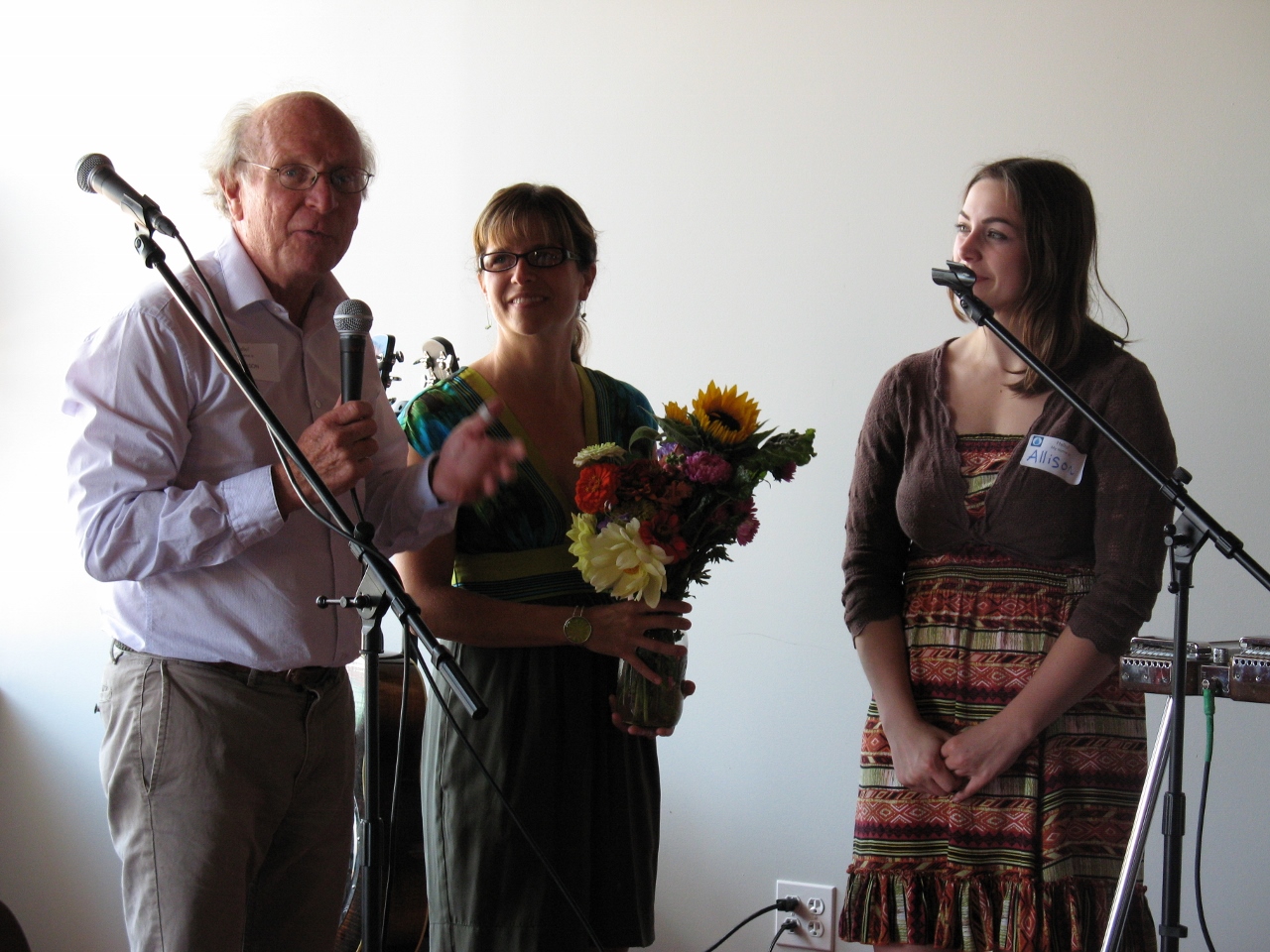I arrived in Traverse City, Michigan Friday afternoon to attend FLOW for Water’s annual meeting and the Great Lakes Society’s annual celebration on Saturday. Over the course of the weekend I’ve been meeting with allies including FLOW’s Jim Olson, Liz Kirkwood and Eric Olson, Food and Water Watch’s Mark Schlosberg and Sierra Club Rochester’s Wayne and Sally Howard to discuss strategies on protecting the Great Lakes from fracking, water withdrawals and other threats.
Seeing the beautiful, turquoise-tinted shores of Traverse Bay, it’s hard to believe that fracking is taking place roughly 30 minutes east of here in the neighbouring country of Kalkaska.
Canadian company Encana plans to frack 500 new deep shale wells in Northern Michigan and wants to withdraw 15 billion litres of water for these projects, roughly the amount of water Traverse City uses in two years according to media reports. Encana will draw groundwater in Kalkaska resulting in the lost of approximately 1.1 billion litres from the North Branch of the Manistee River, a tributary to the Manistee River, which itself is over 300 kilometres and connects Lake Michigan. Encana has already been criticized for using exorbitant and unsustainable amounts of water for fracking in Kalkaska County, with reports in June of using 32 million litres of water for one well.
Environmental groups and some residents are raising concerns about the water use from fracking. Paul Brady, a fracking watchdog in Kalkaska County told Bridge Magazine, “If the citizens of Michigan knew corporations were destroying hundreds of millions of gallons of Michigan water — water that is supposedly protected by government for use by all of us — they would be opposing this new kind of completion (fracking) technique. These deep shale, unconventional wells are using massive amounts of water without adequate testing and solid data on aquifer capacity.”
Michigan implemented a Water Withdrawal Assessment Tool in 2006 to protect streams and rivers from excessive withdrawals but researchers at Michigan State University recently pointed out flaws in the assessment tool including over-estimating “the volume of water in small headwater streams that feed the Manistee River.”
Where is all this fracked gas going to go? According to Bridge Magazine, “Encana officials said the oil and gas industry wants to export natural gas extracted from shale formations in Michigan and other states to consumers in Asia. Demand for natural gas in China is strong and prices are double the cost of natural gas in the U.S., industry, watchdogs said.”
The first well to be fracked in Michigan was reported in 1952 but the process of fracking has significantly ballooned in recent years with over 12,000 wells fracked. The Michigan government highlights five common problems of fracking: the migration of gas or fracking fluids, the lack of identification of chemicals used in the fracking process, disposal of fracking wastewater, surface spills and water use.
Groups such as Don’t Frack Michigan, Ban Michigan Fracking, Food and Water Watch and FLOW are working to fight fracking across the state.
Michigan is the second most agriculturally diverse state in the U.S. after California, with over 125 different foods and fiber products. Traverse City itself is known as the cherry capital of the state. The fracking industry’s exorbitant use of water sources and the potential for water contamination could seriously threaten the state’s $37 billion agriculture industry, the second largest industry in the state’s economy.
The Great Lakes provide drinking water to 42 million people and make up 95 per cent of North America’s freshwater source. The lakes are irreplaceable having been created 10,000 years ago from a glacial retreat and are the largest glacial lakes in the world. Watching the sunset off of Lake Michigan last night and seeing its vast waters, it’s even more clear why it’s so important that we protect these lakes.

I’ll be visiting a well site in Kalkaska County tomorrow and meeting with local allies fighting fracking. Stay tuned for more!




